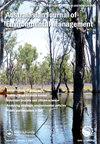Counting scars: culture, science and consultation for modified trees in NSW
IF 1.5
4区 社会学
Q4 ENVIRONMENTAL STUDIES
Australasian Journal of Environmental Management
Pub Date : 2020-11-11
DOI:10.1080/14486563.2020.1824824
引用次数: 0
Abstract
ABSTRACT The identification of Aboriginal culturally modified trees can be problematic due to the number of ways in which scars can form naturally as well as through human modification. Further, there can sometimes be a disconnection between the results of scientific archaeological analysis and cultural values, with comparison between the two separate approaches problematising the way in which authenticity is defined. This article draws on the author’s experiences as a heritage specialist and references consultancy reports and assessments on the identification of Aboriginal culturally modified trees in New South Wales. It suggests the way forward is to clearly identify the rationale behind recordings to capture all of the layered meanings which are associated with these cultural and archaeological heritage sites.数伤疤:新南威尔士州改良树木的文化、科学和咨询
由于疤痕可以自然形成的方式以及通过人类改造形成的方式很多,因此鉴定土著文化改良树可能存在问题。此外,有时在科学考古分析的结果和文化价值之间可能存在脱节,将两种不同的方法进行比较会使确定真实性的方式出现问题。本文借鉴了作者作为遗产专家的经验,并参考了有关新南威尔士州土著文化改良树鉴定的咨询报告和评估。它表明,前进的道路是清楚地确定录音背后的基本原理,以捕捉与这些文化和考古遗址相关的所有分层意义。
本文章由计算机程序翻译,如有差异,请以英文原文为准。
求助全文
约1分钟内获得全文
求助全文
来源期刊

Australasian Journal of Environmental Management
ENVIRONMENTAL STUDIES-
CiteScore
2.60
自引率
0.00%
发文量
16
 求助内容:
求助内容: 应助结果提醒方式:
应助结果提醒方式:


